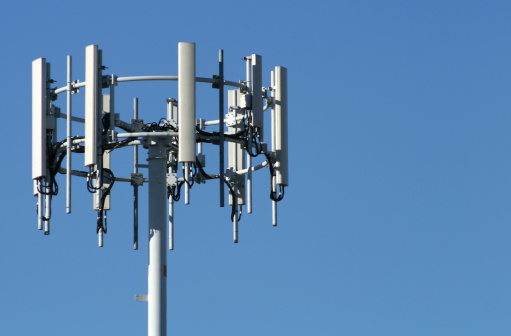Telecom & Wireless
Google Project Fi Joins Sprint and T-Mobile in Wireless Wars
Published:
Google Inc. (NASDAQ: GOOGL) wants its place at the table in the wireless wars. The leader of search, and funder of many outside projects, has announced that it is partnering with Sprint Corp. (NYSE: S) and T-Mobile US, Inc. (NYSE: TMUS) for its Project Fi.
Ultimately, this will bring more action to the wireless battle royal between the likes of: Sprint and T-Mobile versus AT&T, Inc. (NYSE: T) and Verizon Communications Inc. (NYSE: VZ).
Basically, Project Fi puts its subscribers on the fastest available network wherever they are. This could range from over a million different Wi-Fi hotspots to the 4G LTE networks of Sprint and T-Mobile. When not on Wi-Fi the coverage will move to the 4G LTE network with the fastest speed. Once the subscriber is connected, Google secures the data through encryption.
Google describes the project as:
Project Fi works to get technology out of the way so you can communicate through whichever network type and device you’re using. Wherever you’re connected to Wi-Fi—whether that’s at home, your favorite coffee shop or your Batcave—you can talk and text like you normally do. If you leave an area of Wi-Fi coverage, your call will seamlessly transition from Wi-Fi to cell networks so your conversation doesn’t skip a beat. We also want to help phone numbers adapt to a multi-screen world. With Project Fi, your phone number lives in the cloud, so you can talk and text with your number on just about any phone, tablet or laptop. So the next time you misplace your phone, you can stay connected using another screen.
The offer for the plan is relatively simple because it maintains a consistent price for data. So, for $20 a month a subscriber will get the basics (talk, text, Wi-Fi tethering, and international coverage in 120+ countries), and then it’s a flat $10 per GB for cellular data while in the U.S. and abroad.
What’s interesting about this plan is that, because it’s hard to predict data usage, subscribers will get credit for the full value of their unused data. For example, if a subscriber went with 3GB for $30 and only used 1.4GB one month. They would get $16 back, so subscribers only pay for what they use.
What remains to be seen is just how Project Fi will play out in adoption and in revenues. Google has been a master of beta testing products for months or years, and we often get to hear very little about what sort of penetration they are making. That being said, Sprint and T-Mobile have been doing anything and everything to compete against AT&T and Verizon. This fight is likely to last for years and years.
Wednesday afternoon, shares of Sprint were up 1.7% at $5.07 on a 52-week trading range of $3.79 to $9.76. The stock has a consensus analyst price target of $7.28. Shares of T-Mobile were up 2% at $34.01 on a 52-week trading range of $24.26 to $35.50. The stock has a consensus analyst price target $37.44.
Google shares were up 1.3% at $550.00 on a 52-week trading range of $490.91 to $608.91. The stock has a consensus analyst price target of $622.92.
ALSO READ: 5 Cheap Large Caps In An Expensive Stock Market
After two decades of reviewing financial products I haven’t seen anything like this. Credit card companies are at war, handing out free rewards and benefits to win the best customers.
A good cash back card can be worth thousands of dollars a year in free money, not to mention other perks like travel, insurance, and access to fancy lounges.
Our top pick today pays up to 5% cash back, a $200 bonus on top, and $0 annual fee. Click here to apply before they stop offering rewards this generous.
Flywheel Publishing has partnered with CardRatings for our coverage of credit card products. Flywheel Publishing and CardRatings may receive a commission from card issuers.
Thank you for reading! Have some feedback for us?
Contact the 24/7 Wall St. editorial team.